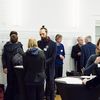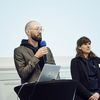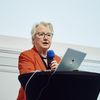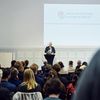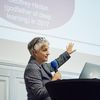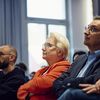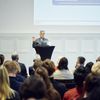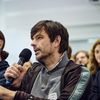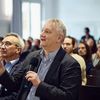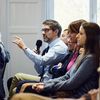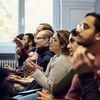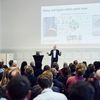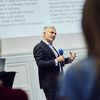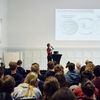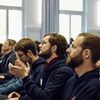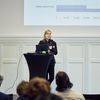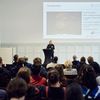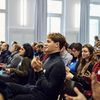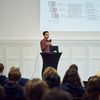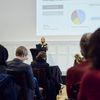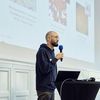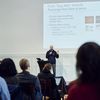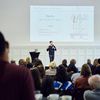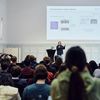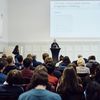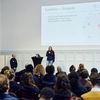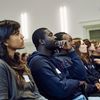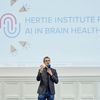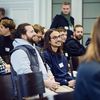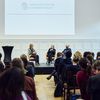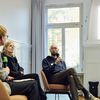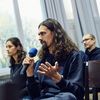Hertie AI Inaugural Symposium
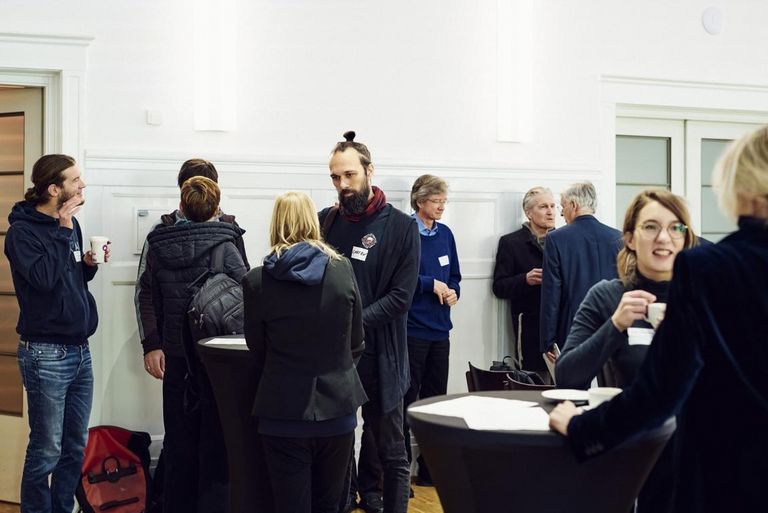
On November 5th, 2024, the Hertie AI Institute held its inaugural symposium, marking an important milestone since its operations began in February 2023. This event brought together around 150 local and international experts, researchers, and clinician scientists from various fields to discuss the latest advancements in AI, particularly in medicine and neuroscience, within the inspiring atmosphere of the NECKAWA.
Opening
The symposium began with welcoming remarks from Hertie AI Director Philipp Berens and Managing Director Christina Bürger. Distinguished guests followed with their speeches: Peter Grathwohl, Vice-President of Research, Innovation, and Transfer at the University of Tübingen; Annette Schavan, Chairwoman of the Executive Board at the Hertie Foundation; and Bernd Pichler, Dean of the Faculty of Medicine at the University of Tübingen.
The symposium featured keynote addresses from prominent figures on the Hertie AI Board of Trustees and from the Tübinger Neuroscience and Machine Learning Ecosystem.
Keynotes Morning Session
Julia Schnabel (Helmholtz Center Munich, Hertie AI Board of Trustees) kicked of the morning sessions. She referenced Nobel laureate Geoffrey Hinton to pose the question: Will AI replace radiologists? She then talked about how AI can enhance medical imaging and disease detection. Andreas Tolias (Stanford University, Hertie AI Board of Trustees) presented on digital twin models of the brain, while Susanne Schreiber (Humboldt University Berlin, Hertie AI Board of Trustees) explained how neuronal diversity, or the “personalities” of neurons, leads to different neural network behaviours. Jakob Macke (Tübingen AI Center, Hertie AI Fellow) presented an AI model of the fruit fly brain that predicts cell behavior without prior exposure to actual neural activity.
Introducing the Hertie AI
In the afternoon, Kerstin Ritter and Philipp Berens introduced the two Hertie AI departments together with Hertie AI Postdocs and PhD students. In Kerstin Ritters department “Machine learning for clinical neuroscience”, many projects focus on the pitfalls and challenges of machine learning on medical data, so-called confounders. Several projects in the Machine Learning department explore how to deal with confounders in medical AI research and ensure AIs learn real associations instead of confounding “shortcuts”. Philipp Berens’ “Data Science” department presented work from their three research groups on representation learning, medical imaging and neuronal modelling. While some projects use AI to address fundamental research questions in neuroscience, others focus clinical applications of AI. Taken together this session highlighted both fundamental research and clinical applications conducted at the Hertie AI.
Keynote Afternoon Session
Tobias Kaufmann (University Tübingen) closed the scientific session with his presentation about using advanced imaging techniques and genetic data to better understand mental disorders. By decoding complex interactions between brain structure and genetic factors, his work aims to improve diagnosis and treatment strategies in psychiatry.
Panel Discussion
The symposium was wrapped up by a panel discussion between Tech journalist Eva Wolfangel, Philipp Berens and Kerstin Ritter, allowing both audience and the speakers to switch gears and reflect on the research topics of the Hertie AI from new perspectives. The panel reflected on the research topics and explored the broader societal contributions of AI and covered a broad spectrum of questions like “In which parts of our society, and in which parts of the world can AI contribute the most to brain health? How hard is it to make AI decisions explainable to humans? And can AI ever be better than the humans from which it learns?”.
Closing Remarks and Get-Together
Philipp Berens concluded the symposium with a thankful closing remark. He thanked all attendees, speakers and the organizing team of the event and invited everyone to a relaxed get-together with drinks, providing a perfect opportunity to network, discuss the day's events, and explore potential collaborations in an informal setting.
Pictures:
ELIA LUCA DYLAN SCHMID
eliaschmid.com
Share article
Author
Dr. Christina Bürger
 Christina Bürger, with extensive experience in science management, has joined Hertie AI as the Managing Director. Having worked in various research and academic institutions, including the Institute of Medical Genetics and Applied Genomics, the Research Department at the University of Tübingen, and the Faculty of Medicine, Christina brings a wealth of knowledge. With a background in Biology and a Ph.D. from Ludwig-Maximilians University Munich, she has specialized expertise in research management and knowledge transfer. In her role, Christina oversees the institute's operations, collaborates with the board for strategic development, coordinates research programs, manages intramural funding projects, ensures quality assurance, and handles communication and international visibility efforts.
Christina Bürger, with extensive experience in science management, has joined Hertie AI as the Managing Director. Having worked in various research and academic institutions, including the Institute of Medical Genetics and Applied Genomics, the Research Department at the University of Tübingen, and the Faculty of Medicine, Christina brings a wealth of knowledge. With a background in Biology and a Ph.D. from Ludwig-Maximilians University Munich, she has specialized expertise in research management and knowledge transfer. In her role, Christina oversees the institute's operations, collaborates with the board for strategic development, coordinates research programs, manages intramural funding projects, ensures quality assurance, and handles communication and international visibility efforts.
